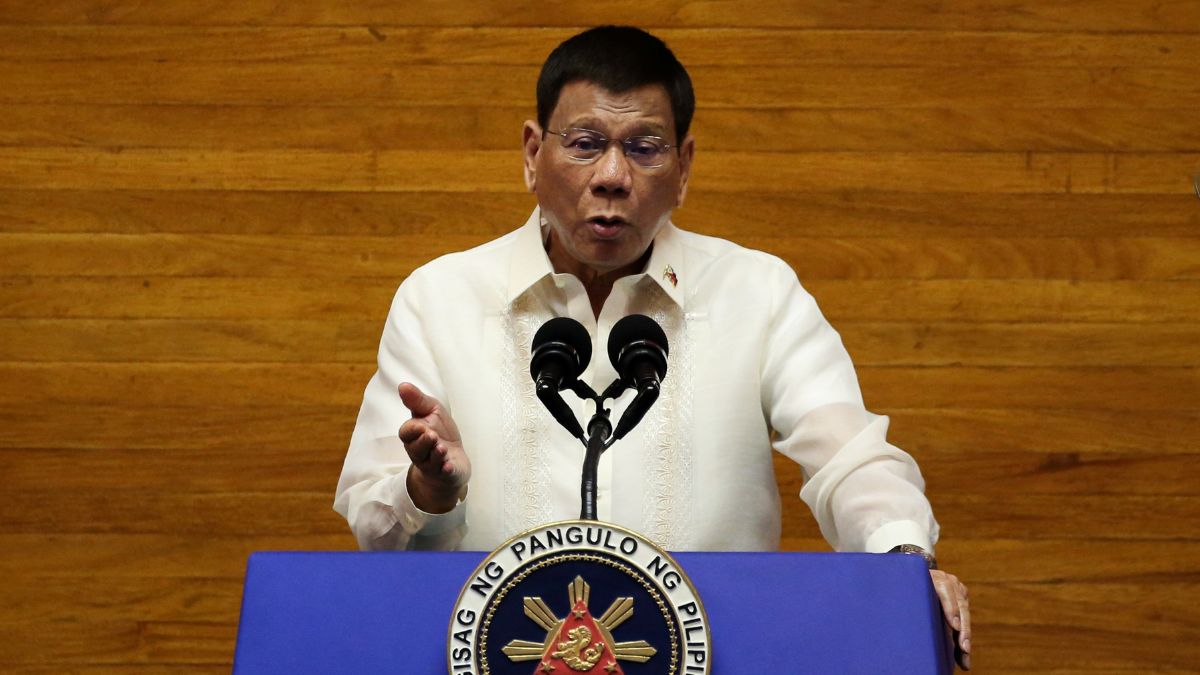Rodrigo Duterte, the former president of the Philippines, has made a return to politics by announcing his candidacy for the mayoral post of Davao City, a position he held for over two decades before his rise to the presidency.
Known for his hardline stance on crime and drugs, Duterte remains a deeply polarising figure due to his administration’s bloody “war on drugs,” a campaign that is currently under investigation by the International Criminal Court (ICC) for potential crimes against humanity.
Why is Duterte attempting a political comeback?
At the age of 79, Duterte officially filed his candidacy last week to reclaim his position as mayor of Davao City, an office he first held in 1988. His son, incumbent mayor Sebastian Duterte, is set to run as his vice-mayor.
Duterte’s return to local politics comes amidst growing political tensions between his family and the administration of incumbent President Ferdinand Marcos Jr, with whom they had once formed a powerful alliance. However, their relationship has soured in recent months, leading to an unravelling of the Duterte political dynasty’s influence on a national level.
This decision by Duterte to run for mayor comes as his family faces several challenges, including the resignation of his daughter, Vice President Sara Duterte, from her role as education secretary in June 2024, signalling a weakening hold within the Marcos administration.
Furthermore, his return coincides with an ongoing ICC investigation into extrajudicial killings that occurred during his presidency’s drug war. As of September, reports suggest that the ICC may issue an arrest warrant for Duterte by the end of the year.
Despite these hurdles, Duterte remains a popular figure in Davao, his political stronghold. Still, the recent arrest of his longtime ally, religious leader Apollo Quiboloy, for child sex trafficking charges has put additional strain on the Duterte political apparatus.
Quiboloy, a self-proclaimed “Appointed Son of God,” had previously backed both Duterte and Marcos in their political bids, but his arrest was seen by many as a strategic blow by the Marcos camp against the Duterte dynasty.
Why is Rodrigo Duterte a controversial figure?
Duterte’s presidential campaign in 2016 centred around his pledge to eradicate the Philippines’ drug problem within six months. However, by the time he left office in 2022, it was clear that this promise had fallen far short.
Despite an official death toll of around 6,248 drug-related killings during his presidency, human rights groups estimate that the actual number could be as high as 30,000, including victims of masked vigilantes allegedly sanctioned by the police.
Duterte consistently denied the allegations of extrajudicial killings, although he publicly encouraged police officers to “shoot [suspects] dead” if they resisted arrest. During his presidency, he stated, “For me, I don’t care about human rights… I will assume full legal responsibility.”
His anti-drug crusade drew widespread international condemnation, with critics labelling it a gross violation of human rights. The brutal “war on drugs” earned Duterte the nickname “The Punisher."
Duterte’s brutal rhetoric added fuel to the fire — at one point, he likened his drug war to Hitler’s Holocaust, drawing swift condemnation from Germany and Jewish groups. Despite these controversies, Duterte remained unapologetic and maintained his tough stance until the end of his term.
During his six years in office, the drug war also impacted police conduct, with reports of growing impunity among law enforcement officers. Notably, a 2020 case saw an off-duty police officer shoot a neighbour, sparking public outrage.
In response to international criticism and an ongoing ICC investigation, Duterte withdrew the Philippines from the ICC in 2019. Nevertheless, the ICC maintains that it has jurisdiction over crimes committed before the Philippines’ withdrawal, keeping the possibility of prosecution alive.
How is Marcos Jr handling this news?
Duterte’s legacy is closely tied to his family’s political influence, but the cracking alliance with Marcos Jr has left the Dutertes on shaky ground. The removal of key police officials loyal to the Duterte family, particularly in Davao, signalled Marcos’ efforts to gain tighter control over anti-drug operations.
As the Marcos administration distances itself from the Dutertes, polls show a decline in public support for the family. Sara Duterte’s approval rating dropped by nine points to 60 per cent, while Marcos’ own approval rating fell by three points to 50 per cent.
While many Filipinos appear tired of the ongoing political dynasties, the country’s weak opposition provides little alternative, leaving voters with few options ahead of the May 2025 congressional elections.
Can Rodrigo Duterte win?
Rodrigo Duterte’s rise to power was seen as a break from the Philippines’ long-standing political dynasties, such as the Aquinos and the Marcoses. Despite being in politics for decades, Duterte successfully branded himself as an outsider.
His aggressive populism resonated with many Filipinos, especially those disillusioned with the country’s judicial system and its failure to tackle crime. Even with his brutal policies, Duterte’s popularity remained high throughout his presidency.
His controversial rhetoric and policies have sparked a war of words with Marcos Jr. Duterte once publicly labelled the current president as a “weak leader” and even accused him of being a drug addict, an allegation Marcos dismissed as a joke.
In response, Marcos retaliated by accusing Duterte of using fentanyl, a powerful opioid. These exchanges only fuelled the perception that the once-strong alliance between the two political families had crumbled beyond repair.
Yet, despite his notoriety, Duterte’s legacy lives on. His daughter Sara holds the vice presidency, and his son remains the mayor of Davao, demonstrating the enduring influence of the Duterte dynasty in the southern Philippines.
Some analysts speculate that Sara Duterte is positioning herself for a presidential bid in 2028, raising the possibility of another Duterte presidency in the near future.
With inputs from agencies


)

)
)
)
)
)
)
)
)



